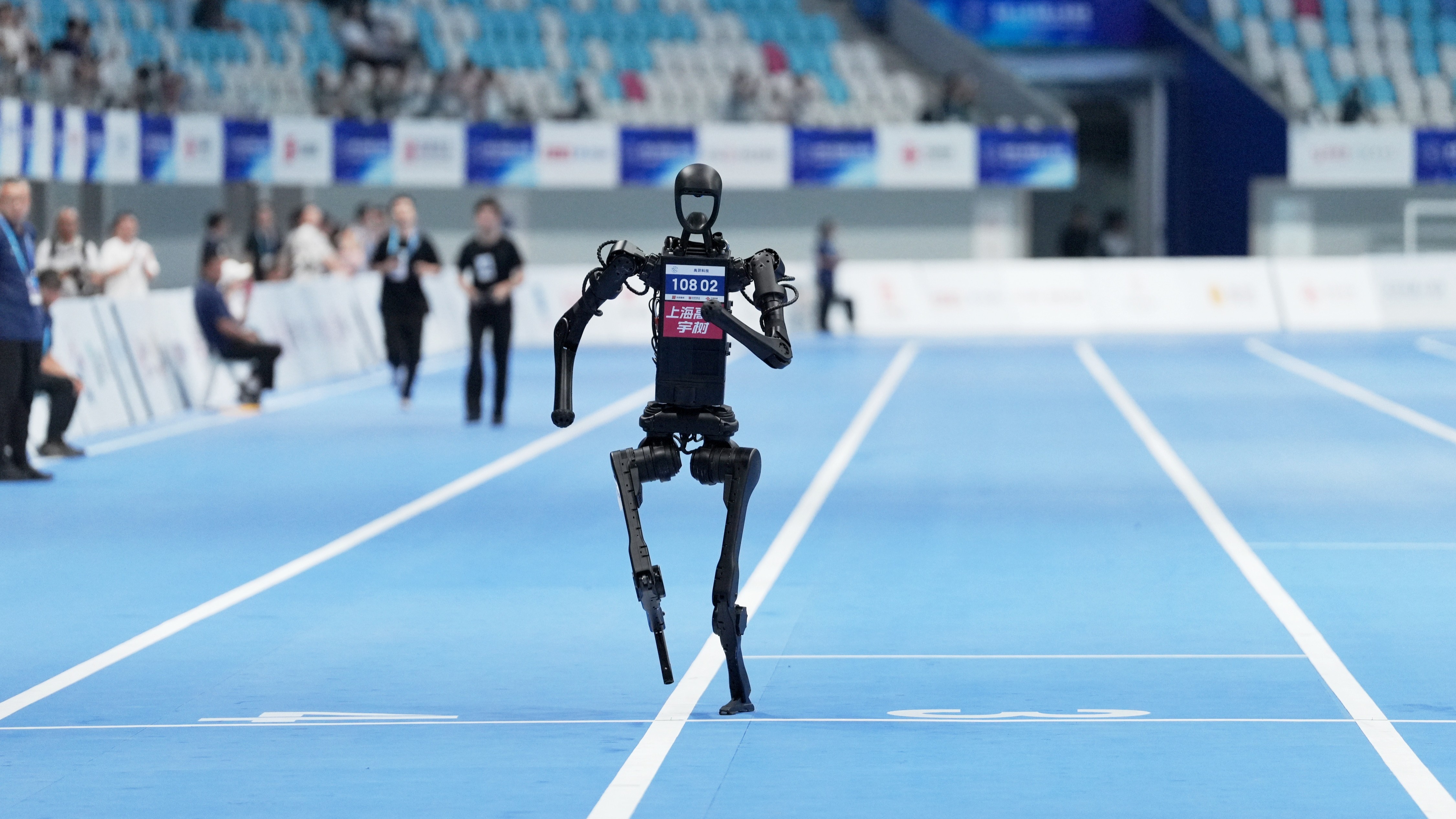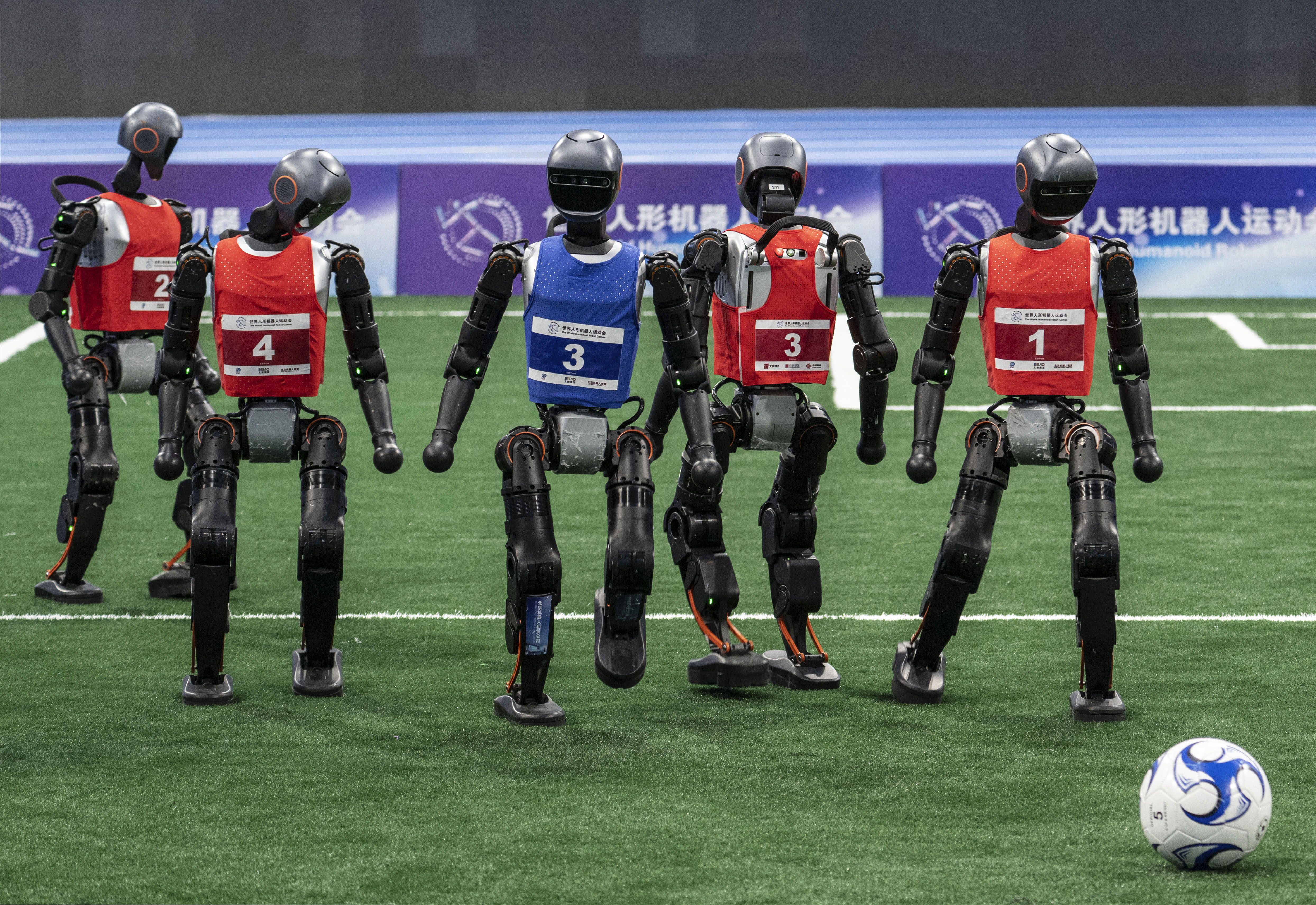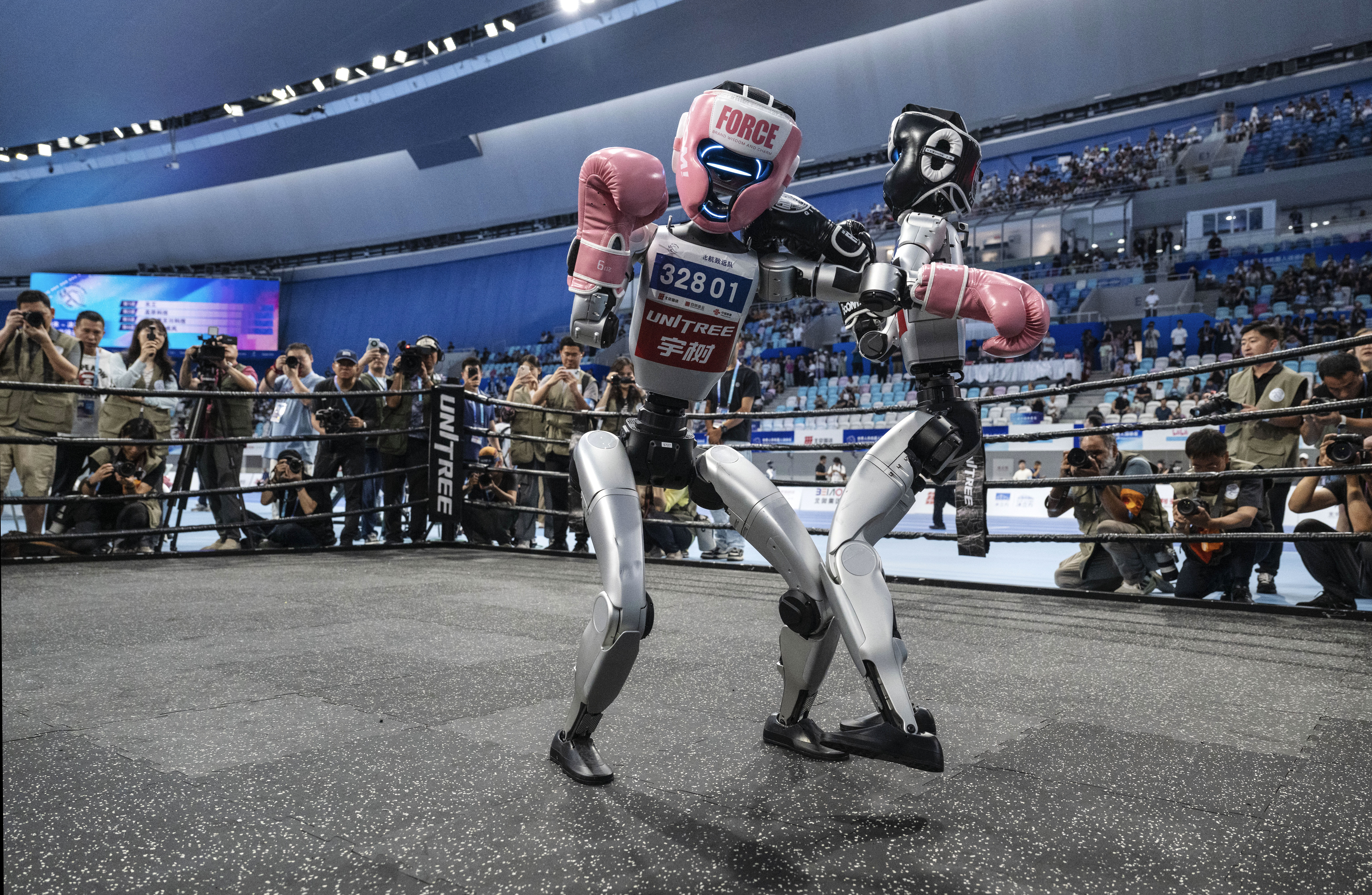Watch On
Humanoid robots are racing, fighting and falling over in a first-of-its-kind World Humanoid Robot Games event held in China.
The Olympics-style competition features more than 500 robots from 16 different countries going head-to-head in sports such as running, soccer and kickboxing. The event also features more niche competitions, including medicine sorting and handling materials for cleaning services, Reuters reported.
An opening ceremony officially kicked off the games in Beijing on Thursday (Aug. 14), featuring robots dancing and playing musical instruments alongside human operators and companions. Robot athletes will now compete until the games come to a close on Sunday (Aug. 17).
Faced with an ageing population and stiff U.S. tech competition, China is investing billions of dollars into robotics. The games are a testament to the strides engineers are making in the field. However, spectators have also seen their fair share of robots moving awkwardly and falling over.
Human biology is very complicated, so building machines that can walk like us — let alone run and play sports — is difficult. For example, in robot soccer, participants didn’t pass the ball to each other with Messi-like precision, but rather walked into the ball to clumsily knock it forward, occasionally stumbling over each other and having to be dragged off the pitch.
The robots are also slower than humans. The fastest robot to have ever run 1,500 meters, for example, finished in 6 minutes and 34 seconds, which is almost twice as long as the human record, which stands at 3 minutes and 26 seconds, according to France 24.
Related: China launches world’s first robot that can run by itself 24/7 — watch it change its own batteries in unsettling new footage
We’ve already seen humanoid robots compete in sporting events. For example, in June, China hosted what was billed as the world’s first humanoid robot combat competition, which saw kickboxing robots awkwardly knock seven bells out of each other. Robot aficionados might also be familiar with robots playing soccer and robots running half-marathons.
The new robot games bring together all of these sports and many more for the first time. They also provide engineers with an opportunity to test out their latest tech.
“You can test a lot of interesting new and exciting approaches in this contest,” Max Polter, a member of the HTWK Robots football team from Germany, told Reuters. “If we try something and it doesn’t work, we lose the game. That’s sad but it is better than investing a lot of money into a product which failed.”















